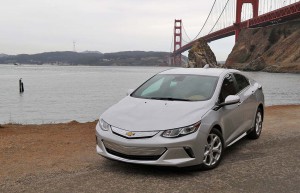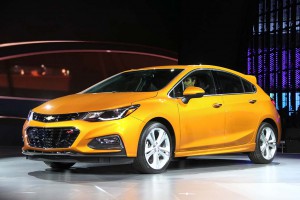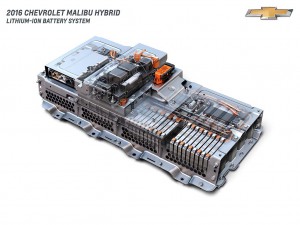“What is in a name?” Shakespeare famously asked. While he was talking about a rose, one might just as well ask why has General Motors renamed its Powertrain group “Global Propulsion Systems”?
Is “propulsion” just the new buzzword, or does it reflect a significant change in the way GM is doing business? The new name comes, notably, just weeks after the Detroit maker restructured its product development operations, creating a separate unit focusing specifically on electrified and autonomous vehicles.
“The new name is another step on our journey to redefine transportation and mobility,” Mark Reuss, GM’s head of Global Product Development, said in a Wednesday announcement. “Global Propulsion Systems better conveys what we are developing and offering to our customers: an incredibly broad, diverse lineup.”
The newly renamed unit will combine both traditional, gas and diesel powertrain programs and newer battery-electric and hydrogen projects. And in a separate interview with TheDetroitBureau.com, Reuss made it clear that GM will be adding a lot more alternative powertrains – and the vehicles that will rely on them – in the years ahead.
(GM’s Opel set to offer a new battery-electric vehicle. For more, Click Here.)
“The diversity of our propulsion systems requires a name that reflects what we are already working on and delivering to our customers,” said Dan Nicholson, vice president, GM Global Propulsion Systems. “I believe this will establish an industry trend.”
At the moment, GM has only a handful of alternative-powered products in its line-up, but product chief Reuss told TheDetroitBureau.com that they are likely to become the majority in the not too distant future, as the company copes with stricter emissions and mileage mandates.
Even now, nearly half of the engineering workforce at Global Propulsion Systems is dedicated to alternative projects, such as the second-generation Chevrolet Volt plug-in hybrid, and the all-new, long-range Chevy Bolt battery-electric vehicle. GM is also exploring hydrogen technology and recent reports suggest it may be looking to partner with Japan’s Honda on a fuel-cell plant.
(Click Here for details about GM’s new specialized autonomous vehicle team.)
While GM won’t discuss production plans, it has been working with Honda on fuel-cell research. And it is partnering with erstwhile rival Ford on the development of a new 10-speed automatic transmission. Gone are the days when manufacturers were guided by the NIH rule – Not Invented Here.
Today, alliances are becoming more the norm than the exception. And it’s not unusual for one carmaker to produce components for another. Nissan, for example, is producing a new four-cylinder engine that it’s supplying alliance partner Daimler AG for use in the latest version of its C-Class line.
“Today’s customer is demanding unprecedented technology integration that requires unprecedented engineering and supplier partnerships,” said GM’s Nicholson.
(For more on the possible GM-Honda hydrogen project, Click Here.)
So, while skeptics might suggest the latest move by the Detroit giant is just a name game, it reflects an ongoing shift in both strategy and structure that will become increasingly apparent in the years to come.



